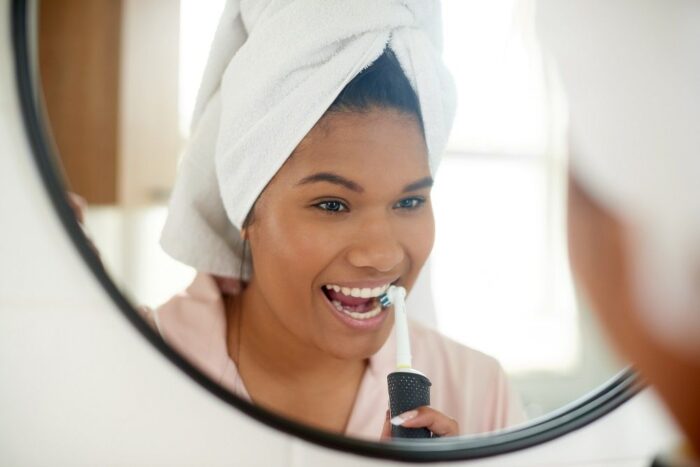Your toothbrush is more than just a part of a daily ritual. It’s a powerful tool in the fight for good oral health. However, there is more to your toothbrush than grabbing anything off the shelf. The choice of toothbrush, how you use it, and how often you replace it can greatly influence the state of your teeth and gums. Choosing the right toothbrush can make a difference in your oral health.
The Toothbrush Basics
The toothbrush is your primary weapon against plaque, bacteria, and tooth decay. Also, its effectiveness depends on several key factors.
Bristle Type
Toothbrushes come with different types of bristles: soft, medium, and hard. Most dentists recommend a soft-bristle toothbrush. This is because it effectively cleans teeth without damaging the gums and enamel.
Toothbrush Head Size
The size of your toothbrush head is important for reaching all areas of your mouth. A smaller head can be more effective, especially in the back of your mouth.
Manual vs. Electric
Both manual and electric toothbrushes can be effective. But, electric brushes are often more efficient in removing plaque. So, you should choose the one you’re most comfortable with and can use effectively.
The Art of Brushing
How you use your toothbrush matters just as much as its quality. One aspect that you should remember is the angle of your brushing. Hold your toothbrush at a 45-degree angle to the gum line. This also helps remove plaque and food particles effectively.
Additionally, you need to use gentle pressure when brushing your teeth. Avoid using excessive force while brushing. Gentle, circular motions are ideal. Brushing too hard can damage the gums and enamel.
Finally, you should brush your teeth for at least two minutes twice a day.
Replacing Your Toothbrush
Over time, the bristles of your toothbrush wear down, making it less effective at cleaning your teeth and gums. Knowing when to replace it is crucial. Dentists recommend replacing your toothbrush every three months or sooner if the bristles are frayed. Worn-out bristles can’t clean as effectively.
If you’ve been sick, replace your toothbrush immediately after you recover. Bacteria can linger on the bristles, potentially reinfecting you.
Keep an eye on your child’s toothbrush. They may need replacements more frequently as they tend to brush more vigorously.
The Impact of Your Toothbrush on Oral Health
A well-maintained toothbrush effectively removes plaque, which is the leading cause of tooth decay and gum disease. Therefore, regular brushing can prevent these common dental problems.
Gum Health
Gentle brushing with a soft-bristle toothbrush helps protect your gums. Vigorous brushing with a hard-bristle brush can cause gum recession and sensitivity. This can also increase your risk of gum issues.
Fresh Breath
Proper brushing with a toothbrush that effectively removes bacteria can help keep your breath fresh. Bad breath is often a result of leftover food particles and bacterial growth.
Preventing Stains
Regular brushing can help prevent stains on your teeth. Stains from coffee, tea, or smoking can be removed with consistent and thorough brushing. Also, plaque buildup can cause yellow teeth over time.
A toothbrush can contribute to a brighter smile by removing surface stains. It can ensure that your teeth are clean and free of debris.

